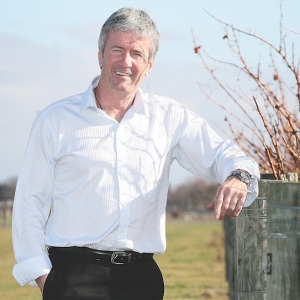What does this really mean? Double the volume? What about the value? Increasing volume doesn’t necessarily mean value. While we are told otherwise, I fear volume over value is the objective of the National Government.
Too often, we just focus on maximising production and then selling to anybody who is able to pay. This has seen a ‘produce, process, flog’ mentality. This is what I fear is the Government’s simple approach with its double volume goal. For me “double the exports” is not a vision, but a simple target to convince people something positive is being attempted. The absence of a real vision for New Zealand by the Government means whatever action they attempt may be defeated by a lack of coordinated efforts. A classic example is this Government’s efforts to improve the current state of the meat industry.
Some of you may have read the report from Rabobank’s agribusiness division. A key message from it was the statement that “New Zealand risks a ‘golden opportunity’ to grow its agricultural base unless we adopt a co-ordinated, joint approach to improve our competitiveness”. This is wise and not necessarily new advice for agribusiness sectors.
We can take the pure market approach and rely on ever-changing commodity prices, manipulations of the market by traders, and subsidised production around the world to deliver supposedly fair market returns to our individual farmers.
Or, we can take the approach that says, unless we organise and collaborate, our efforts as individual farmers will leave us with little or no leverage over the prices paid in the increasingly competitive protein and fibre markets.
It is through this collaborative approach that Fonterra and Zespri have become such significant international players and now dominate their sectors so successfully. Both these organisations owe their existence to Labour Government leadership. Labour will make the hard decisions such as capital gains tax, restructuring the meat industry and moving to ensure water quality degradation does not destroy our environment.
The Parliamentary Commissioner for the Environment in reports and submissions to Parliament has provided a wake-up call for all of us, with a particular focus on pastoral agriculture. Other reports have highlighted the abysmal state of water management in our largest city, Auckland.
We share the huge challenges that Auckland, Christchurch and some other cities face with the continual pollution of their waterways and coastal environment but there is no doubt the intensification of dairying is having a major impact on our waterways and possibly aquifers.
We need to push sustainable solutions in urban and rural environments. There is no doubt that large irrigation schemes subsidised by the Government will increase dairy farm effluent and nutrient pollution of our rivers without adequate safeguards.
There is no question robust and useful… freshwater management is desperately needed for our country. Most New Zealanders expect to be able to drink clean water, to swim and enjoy local rivers and ensure that none of our recreational or industrial practices undermine our valuable international brand reputation.
We would like to see a few more Zespris and Fonterras in the international marketplace.
‘Double our exports’ is not a vision it’s an action. And from what we see so far it is an uncoordinated action. The question any government should ask is why we do these things and what is the vision for our country into the future?
Labour has already started down this track.
















